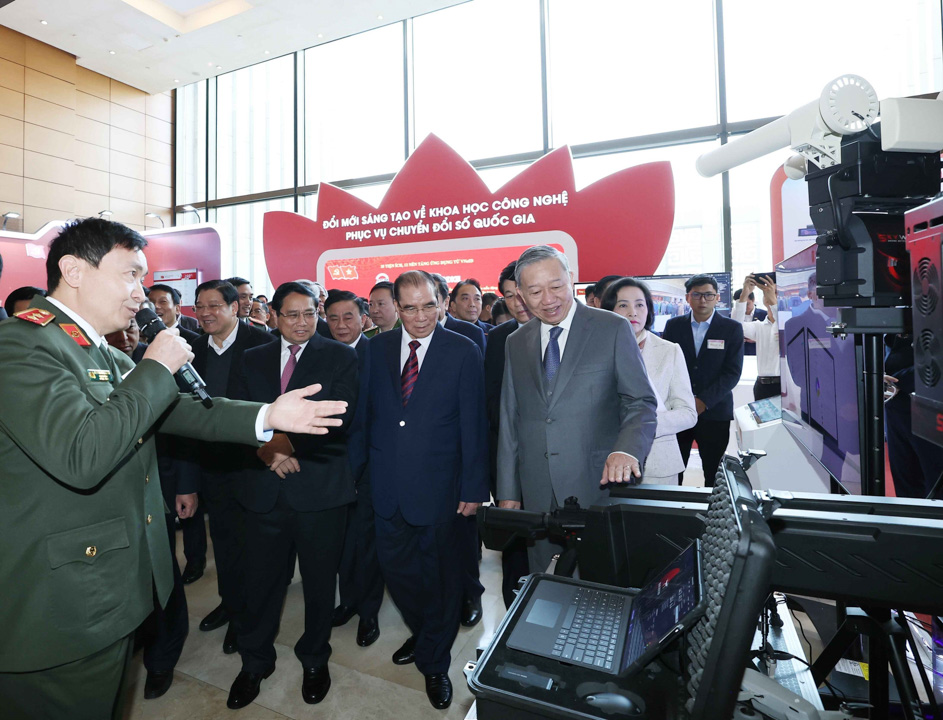HCMC – The Politburo has established a central steering committee to spearhead Vietnam’s drive towards scientific and technological advancement, innovation, and national digital transformation.
The decision was announced at a national conference held today, January 13, to deploy Resolution 57-NQ/TW adopted on December 22, 2024 by the Politburo to push for scientific and technological advancement, innovation, and national digital transformation.
Chaired by Party General Secretary To Lam, the committee will be responsible for developing and implementing comprehensive strategies, overseeing policies, and coordinating efforts across all relevant agencies.
The goal is to foster a robust culture of innovation and accelerate Vietnam’s transition to a knowledge-based economy, addressing critical challenges and overcoming the middle-income trap.
Speaking at the conference, the Party chief underscored the pivotal role of science, technology, innovation, and digital transformation in achieving the nation’s development goals. “To become a modern industrialized country by 2030 and a developed, high-income country by 2045, we must recognize these as our key driving forces.”
He said breakthroughs and innovations would help Vietnam move forward. “They are essential for creating revolutionary advancements, overcoming existing limitations, and achieving truly outstanding results.”
Recognizing the long-term nature of this endeavor, Lam stressed the need to anticipate delays and risks inherent in science and technology investment. He also underscored the critical role of data, which must be treated as a valuable new resource.
Key priority areas for development include physics and energy, with a focus on quantum mechanics, microprocessors, lasers, and nanotechnology.
The committee also considers advancements in information and communication technology, breakthroughs in medicine and biology, space technology, materials science, and environmental technologies.
To support these advancements, Vietnam aims to increase public spending on research and development. The target is to allocate at least 3% of the national budget to science, technology, and digital transformation by 2025, with a further goal of raising spending to 2% of GDP within the next five years.
The Government has plans to ensure that all business-related administrative procedures are conducted online by the end of this year, eliminating geographical limitations imposed by provincial boundaries.









